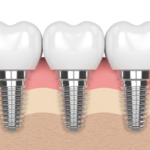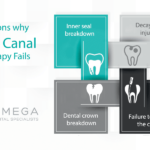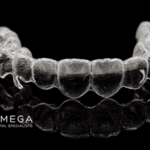What Can I Do If I’ve Lost Most of My Teeth?
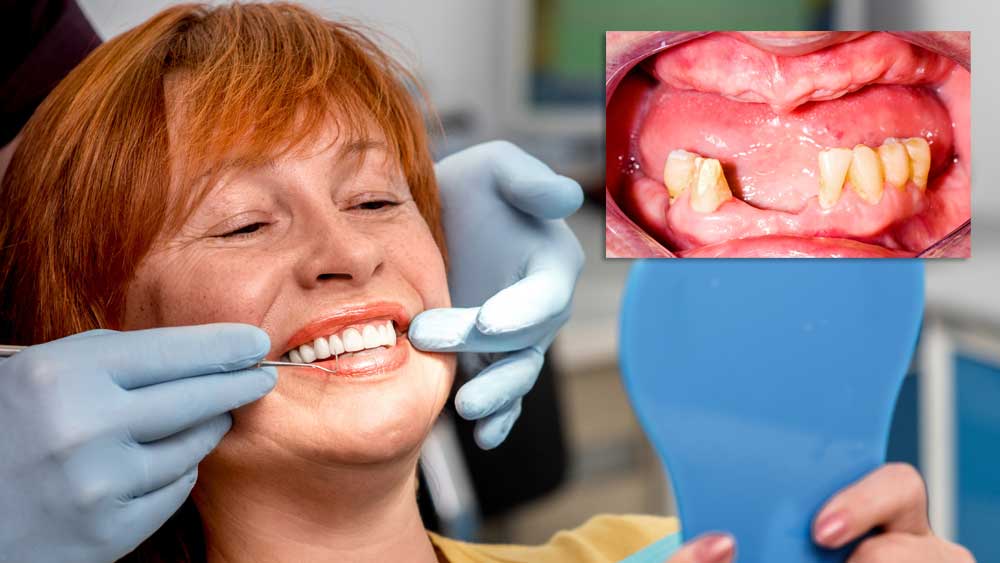
Table of Contents
Tooth loss and edentulism
Tooth loss, also known as edentulism, is a severe and chronic irreversible medical condition. It can create oral changes that have highly negative impacts on the general health of the patient as well as psychological discomfort, loss of social functioning, and damages the overall quality of life. Despite efforts made in dentistry, edentulism is highly prevalent with about 7 percent to 69 percent of adults globally affected. Estimates are that a very high rate of occurrence will occur in the coming decades, especially in elderly people across the nation.
Treatment options for tooth loss
The most common treatment option for complete edentulism remains conventional dentures for financial reason, with patients choosing complete denture as a way to cope. Most of the time, this does not fulfill the patients’ needs and is increasingly regarded to cause multiple shortcomings, often due to the instability of dentures. Implant supported dentures provide better treatment outcomes with significant improvements in oral function reported along with vast gains in quality of life of the patient, according to most studies.
Implants in edentulous patients, despite their increasing use, are nonetheless still not the dominant form of treatment, which may be linked to oral, systemic and even social factors. Often, edentulous patients are elderly and face barriers to treatment and may have limited financial means, problems with transportation, and may have been experiencing communication problems linked to hearing loss or visual acuity. Many show less willingness to accept more complex treatments with major surgical interventions, including bone grafting or implant placement. Often, the elderly may have systemic health issues that can be viewed as risk factors for complications to dental procedures. Simpler treatments with more high predictability and which are thought to be easier to maintain may be the preferable option for the older patient without sharing of knowledge of the practical advantages of implants.
Despite such factors that limit dental implant procedures in edentulous patients, due to their better treatment outcome compared to conventional dentures or root overdentures, future dental practices will most likely advance implants as a more standard treatment option to be used. Supporting this is the growing consensus that the two-implant overdenture process is the minimum standard of care for mandibular edentulism. That takes into account the performance, patient satisfaction, costs and time involved by patient and doctors. The use of dental implants will continue without doubt to increase over the coming years as advancements in technology through continued research in the dental field continue to take place. This, combined with lessened implant procedure costs and greater acceptance of such treatment options by the general public will also encourage more and more patients to seek this care method.
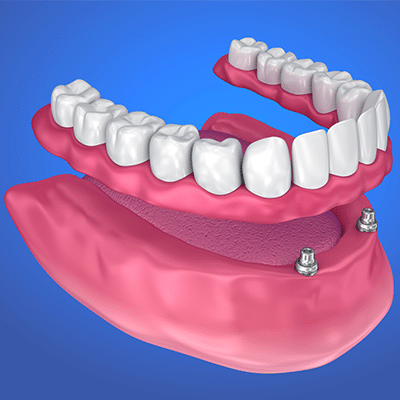
Despite improvements in dental care, millions of Americans suffer tooth loss — mostly due to tooth decay, periodontal disease, or injury. For many years, the only treatment options available for people with missing teeth were bridges and dentures. But, today, dental implants are available.
If you have a single tooth missing, you know firsthand the impact on your smile. Choosing to receive a dental implant can help you return your appearance to more natural looking teeth and can allow you to again confidently chew, speak or smile. Dental implants are the next best thing to your healthy, natural teeth. Strong and stable, a dental implant restores a lost tooth so that it looks, feels, fits and functions like a natural tooth when implanted by an experienced implant dentist. Other options such as dentures or bridges can lead to bone deterioration and may interfere with eating, smiling, speaking and other activities of everyday life.
What are the advantages of overdentures?
Out of the variety of implant options that can be employed, minimally invasive implant treatment alternatives may be more appropriate for the elderly edentulous patients, considering their oral and systemic status, needs, expectations, and barriers. Use of far less-invasive surgical procedures and avoiding bone grafting, using flapless techniques for implant placement and using a reduced number of implants will also encourage this trend. Each is beneficial due to the shorter healing period that is involved along with less discomfort for patients who have reported less associated pain or stress from such treatment. The additional possibilities the procedures now provide for more immediate implant loading with greater functionality and the lessened clinical time required for the process also is resulting in greater adoption of the implants by patients. This is a trend that will grow and is especially prevalent in state-of-the-art dental practices. Patients find the procedure more practical and cost-effective in providing quality of life advancement.
Why should I choose implant supported prosthetics?
Summary of reasons for choosing to have dental implants
- Improved quality and ease of use. Implants are now recognized as the top choice by more dentists and patients
- Demographics show that aging patients prefer to keep a youthful, attractive appearance longer. The concept of becoming middle-aged and retiring means keeping one’s teeth and maintaining a higher quality of life.
- High levels in the rate of success for implants mean practices offer dental implants as a treatment alternative over other procedures such as bridges, crowns, and dentures
- Dental schools now include implant treatment in the curriculum and clinicians are more familiar with implant treatment
- Advancements in design, grafting and proven outcome data have narrowed contraindications for the treatments involved.
- Patients are coming to view implants as a standard care option and not as a luxury. Implants or implant-retained denture prostheses make chewing and smiling desired as a basic outcome in patient care
- Decreased treatment time and less pain associated with the procedures is another major key
- Insurance plans increasingly covering some of the costs is another major trend in such care
Major advantages to dental implants include the following:
- Improved appearance. Dental implants look and feel like your teeth. And because they are designed to fuse with bone, they become permanent and can improve your quality of life greatly.
- Improved speech. With poor-fitting dentures, the teeth can slip within the mouth causing you to mumble or slur your words. Dental implants allow you to speak without the worry that teeth might slip. Never worry again.
- Improved comfort. Because they become part of you, implants eliminate the discomfort of removable dentures. This is a life-changing advantage.
- Easier eating. Sliding dentures can make chewing difficult. Dental implants function like your teeth, allowing you to eat your favorite foods with confidence and without pain. No more worries biting the apple.
- Improved self-esteem. Dental implants can give you back your smile and help you feel better about yourself. You deserve feeling great about yourself.
- Improved oral health. Dental implants don’t require reducing other teeth, as a tooth-supported bridge does. Because nearby teeth are not altered to support the implant, more of your teeth are left intact, improving long-term oral health. Individual implants also allow easier access between teeth, improving oral hygiene.
- Durability. Implants are very durable and will last many years. With good care, many implants last a lifetime.
- Convenience. Removable dentures are just that; removable. Dental implants eliminate the embarrassing inconvenience of removing dentures, as well as the need for messy adhesives to keep them in place. Why fight the denture battle?
What are dental implants?
Dental implants are medically approved devices that replace the root portion of absent teeth. Implants have a titanium “root” or “post” device that is surgically placed into solid bone. In a second stage, a crown is placed on the post. Here is video shows the basics of the implant process.
The quality and amount of bone that is available at the site of the implant are very important, as is oral hygiene of the patient. While each case differs, in general about nine out of 10 procedures is successful. Our practice’s success rate is closer to 98 percent.
What is the cost of dental implants?
The cost of implants varies, and fees charged depend on many factors. In general, a basic implant will run about $2400. Dental insurance covers some portion but likely will not cover all the charges since most plans are capped around $1,000 to $2,000. The dental implant itself is only part of the treatment – a crown must be affixed to the top of the implant. Most often, we see a single tooth that receives a single implant and single crown, which costs in the range of $1200and $1800.
Can I finance my dental implant treatment?
Financing is available. Our patients can finance the procedure through programs we offer in our office. Please ask your treatment planner for details. We want to work with you to improve your quality of life.
Why should I choose a dental implant over a traditional bridge?
There are very good reasons to choose dental implants over traditional dental bridges or other options.
- With an implant, no additional teeth must be trimmed down as is required for bridges.
- Implants look and feel natural. They are like a tooth that does not decay.
- If future tooth loss occurs, the implant can support a bridge or denture.
What is the success rate for dental implants?
Success rates of dental implants vary, depending on where in the jaw the implants are placed but, in general, dental implants have great rates of success. Our practice has a success rate of 98 percent. With proper care implants can last a lifetime.
How painful are dental implants?
Most people who have received dental implants say that there is very little discomfort involved in the procedure. Local anesthesia can be used during the procedure, and most patients report that implants involve less pain than a tooth extraction. After the dental implant, mild soreness can be treated with over-the-counter pain medications, such as Tylenol, Motrin or Ibuprofen. We can also prescribe pain medication if needed.
How do I care for dental implants?
Dental implants require the same care as real teeth, including brushing, flossing, rinsing with an antibacterial mouthwash, and regular dental check-ups.
January 30, 2023What to Expect During the Wisdom Teeth Extraction
October 23, 2022Wisdom Tooth Removal Cost
July 26, 2022Should I Have My Wisdom Teeth Removed Before I Get Braces?
July 26, 2022Complete Guide to Wisdom Tooth Removal
September 16, 2021Dental Bone Graft Cost, Materials and Procedure
September 16, 2021Why Do I Need NightGuard?
September 14, 2021Tooth Extraction Healing Time
May 06, 2021What is A Dry Socket?

